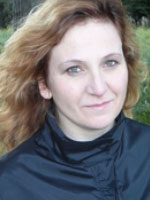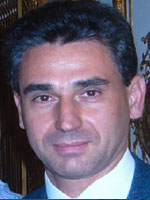KEYNOTE Speakers

Susan Bassnett
World famous Translation Studies scholar, one of the leading figures internationally, Honorary Professor at the University of Birmingham, Susan Bassnett is Professor of Comparative Literature at the University of Warwick and has just been appointed Special Adviser in Translation Studies for a 3 year period attached to the Sub-Faculty of Modern Languages.
She was educated in Denmark, Portugal and Italy, acquiring various languages in childhood. She established postgraduate programmes in Comparative Literature and then in Translation Studies at the University of Warwick where she also served twice as Pro-Vice-Chancellor. She continues to lecture and run workshops around the world and her current research is on translation and memory. She is an elected Fellow of the Institute of Linguists, elected Fellow of the Royal Society of Literature and a Fellow of the Academia Europaea. In recent years she has acted as judge of a number of major literary prizes including the Times/Stephen Spender Poetry in Translation Prize, the Independent Foreign Fiction Prize and the IMPAC Dublin prize. She is also known for her journalism, translations and poetry.
She is the author of a number of key works in the discipline, including the seminal textbook Translation Studies (4th edn 2013). She has also (co-)written or edited Translation, History and Culture (1990), Constructing Cultures: Essays on Literary Translation (1996), Postcolonial Translation: Theory and Practice (1998), The Translator as Writer (2006), Translation in Global News (2008), Political Discourse, Media and Translation (2010) and, most recently, Translation, in the Routledge New Critical Idiom series (2013).
Studiosa di fama mondiale, è una delle figure di maggior spicco nell’ambito degli studi culturali e dei Translation Studies. Professoressa Onoraria all’Università di Birmingham, Susan Bassnett è professoressa di Letterature Comparate all’Università di Warwick ed è stata recentemente nominata Special Advisor in Translation Studies per tre anni presso la Facoltà di Lingue Moderne.
Cresciuta in Danimarca, Portogallo e Italia, Susan Bassnett ha imparato diverse lingue durante la sua infanzia. Ha creato i corsi post-lauream in Letteratura Comparata prima e in Translation Studies poi presso l’Università di Warwick, dove ha anche ricoperto due volte la carica di Pro-Rettore. Svolge un’intensa attività didattica e scientifica in giro per il mondo, i suoi interessi di ricerca più recenti sono la traduzione e la memoria. E’ Elected Fellow della Society of Literature e Fellow della Academia Europaea. Recentemente è stata membro di giuria per diversi premi letterari quali il Times/Stephen Spender Poetry in Translation Prize, e l’Independent Foreign Fiction Prize ed il IMPAC Dublin prize. E’ anche nota per la sua attività giornalistica, traduttiva e poetica. Tra le sue pubblicazioni troviamo il fondamentale Translation Studies (di cui il 2013 ha assistito alla 4° edizione) ed altri volumi di grossa rilevanza di cui è co-autrice o curatrice: Translation, History and Culture (1990), Constructing Cultures: Essays on Literary Translation (1996), Postcolonial Translation: Theory and Practice (1998), The Translator as Writer (2006), Translation in Global News (2008), Political Discourse, Media and Translation (2010), sino al recentissimo Translation, pubblicato nella serie Routledge New Critical Idiom (2013).
Abstract
Translation and Creativity
Translation, for so long viewed as a secondary, imitative literary activity has undergone a critical reassessment in recent years. Today, translation is starting to be seen as fundamental to literary and cultural renewal, and as a major shaping force in literary transmission. This paper starts with the premise that translation is a creative act, and explores how poets and translators invite re-readings in new contexts. The Irish writer Patrick Kavanagh's essay, 'Parochialism and Provincialism' serves to underpin a discussion of translation strategies, while attention is also focussed on the legacy of Romantic nationalist ideology that has held back considerations of translation as an important creative element in literature.
Pietro Taravacci
Pietro Taravacci studied at the University of Pisa and the University of Virginia. He is full professor of Spanish Literature at the University of Trento. His fields of interest have included the Medieval sentimental novel, the picaresque novel, the burlesque theatre of the Siglo de Oro, theatrical rewriting and contemporary opera. Currently his research work regards the relations between literature and the figurative arts, metatheatre and the theory and praxis of the translation of poetic texts. At the University of Trento he has founded and directs the Seminario Permanente di Poesia (SEMPER -- Permanent Seminar on Poetry).
A past president of AISPI, he is the editor of Ticontre. Teoria Testo Traduzione, founder and editor of Cuadernos Aispi, co-editor of the imprint "Teatro Breve" (Iberoamericana), member of the scientific committee of the journal Orillas, of the imprint "Bagatelle" (ETS). Già presidente dell’AISPI, è direttore responsabile di Ticontre. Teoria Testo Traduzione, fondatore e redattore dei Cuadernos Aispi, codirettore della collana "Teatro Breve" (Iberoamericana), membro del comitato scientifico della rivista Orillas, della collana "Bagattelle" (ETS).
Formatosi all'Università di Pisa e presso l’University of Virginia, Pietro Taravacci è professore ordinario di Letteratura spagnola all’Università degli studi di Trento. Si è dedicato al romanzo sentimentale medievale, al romanzo picaresco, al teatro burlesco del Siglo de Oro, alle riscritture teatrali e alla lirica contemporanea. Attualmente la sua attività di ricerca è rivolta alla relazione tra letteratura e arti figurative, al metateatro e alla teoria e alla prassi della traduzione del testo poetico. Presso l'Università di Trento ha fondato e dirige il Seminario Permanente di Poesia (SEMPER).
Già presidente dell’AISPI, è direttore responsabile di Ticontre. Teoria Testo Traduzione, fondatore e redattore dei Cuadernos Aispi, codirettore della collana "Teatro Breve" (Iberoamericana), membro del comitato scientifico della rivista Orillas, della collana "Bagattelle" (ETS).
Abstract
Musica "de otros": poeti traduttori del Novecento
A partire dal sintagma che dà il titolo al volume che raccoglie le traduzioni e le parafrasi di Juan Ramón Jiménez, il mio contributo Musica "de otros": poeti traduttori del Novecento intende offrire una riflessione sulle intersezioni fra creazione e traduzione nella poesia moderna e contemporanea. L'indagine, che si avvale di alcuni recenti contributi traduttologici e di un impianto filosofico linguistico e filosofico traduttivo, si centrerà soprattutto su poeti ispanici come Jiménez, Paz, Valente e Siles, per estendersi ad altre figure di poeti, quali Pound, Ungaretti, Jabès, Bonnefoy, Meschonnic, tra altri, che hanno incrociato la loro esperienza creativa con quella traduttiva, contribuendo alla individuazione di una vera e propria poetica della traduzione.
Delia Chiaro
Delia Chiaro is Professor of English Language and Translation at the University of Bologna’s Department of Interpreting and Translation. Born, bred and educated in the UK, Delia has spent her entire academic career in Italy where she has combined her passion for film and TV with her interest in visual and verbal ambiguity and duplicity – an interest which has provided her with the perfect excuse to study humour in all shapes and sizes, but especially how it is perceived in translation and its cross-cultural impact.
Since publishing The Language of Jokes: Analysing Verbal Play (Routledge 1992) she has written extensively on diverse aspects of language and humour, most recently Gender and Humor: Interdisciplinary and International Perspectives (with Raffaella Baccolini, Routledge, New York: 2014) while The Language of Jokes in the Digital Age is forthcoming with Routledge in early 2015. She has been invited to lecture on humour across Europe, Asia and New Zealand.
Beyond academia, her hobbies include running, socialising and socialism.
Delia Chiaro è professoressa di Lingua e Traduzione Inglese presso l’Università di Bologna, Dipartimento di Interpretazione e Traduzione. Nata e cresciuta in Gran Bretagna, ha svolto tutta la sua carriera accademica in Italia dove è riuscita a combinare la sua passione per il cinema e la televisione con il suo interesse per l’ambiguità e la duplicità verbale e visiva – un interesse che le ha dato la possibilità di studiare lo humour in ogni sua forma ed, in maniera particolare, come esso viene percepito in traduzione da un punto di vista cross-culturale.
Dalla pubblicazione di The Language of Jokes: Analysing Verbal Play (Routledge 1992), la sua ampia attività si è concentrate principalmente su diversi aspetti relativi alla lingua e allo humour e ha recentemente pubblicato Gender and Humor: Interdisciplinary and International Perspectives (con Raffaella Baccolini, Routledge, New York: 2014). La pubblicazione di The Language of Jokes in the Digital Age è prevista con Routledge per l’inizio del 2015. Svolge intense attività didattica e scientifica in Europa, Asia and Nuova Zelanda, dove è stata spesso invitata a parlare sullo humour.
Oltre l’accademia, i suoi hobby sono correre, socializzare e il socialismo.
Abstract
The Outskirts of Humo(u)r : Language, Laughter and Diversity
One of the strengths of humorous discourse is that it allows its author to say the unsayable. Sex, politics and religion are just three of the many sensitive areas typically tackled in humorous discourse. Politically incorrect? Absolutely, but with the excuse of “I was only joking” when it comes to humo(u)r anything goes. Thus, it is since forever that the centre has made fun of the periphery – or rather, several centres have made fun of diverse peripheries.
The inhabitants of locations known as “Fooltowns” (Davies 1998) have provided material for jokes since the dawn of time. Over the centuries, city-dwellers have typically scoffed their rustic, peasant neighbours for their simplicity so that just as the Ancient Egyptians made fun of the Nubians, present day inhabitants of England’s metropolitan areas ridicule Essex girls. Thus, as far as humo(u)r is concerned, matters have hardly changed at all, in other words, the outsider remains an outsider and the joke is always in substance the same joke.
In this talk I will explore the question of diversity, in terms of ‘outsideness’, as a source of humo(u)r in assorted text-types. After distinguishing the notions of laughing at and laughing with, I shall discuss different facets of ethnic humo(u)r within this binary framework to then move on to survey its role within the peripheries of gender and wrestle with the notion of whether, and if so, how, the fringe ever strikes back.

Sergia Adamo
Sergia Adamo teaches Literary Theory and Comparative Literature at the University of Trieste. She has been a visiting professor and scholar at, among other places, Cornell University, the University of Dusseldorf and the University of Klagenfurt. Her research interests include relations between cultures, the history of translation and feminist theory. She has translated works by Gayatri Spivak and Judith Butler into Italian.
Abstract
The Politics of Feminist Translation

Augusto Guarino
Augusto Guarino, PhD. in Hispanic Literature (1990, University of Bologna), is Full Professor of Spanish literature at the Università degli Studi di Napoli "L'Orientale" since 2000. He held the Chair of Vice-Rector from 2001 to 2007. He was Dean of the Faculty of Foreign Languages and literatures from 2007 to 2012. In the years 2001-2002, he was the coordinator of the "Indirizzo Lingue Straniere" of the "Scuola Interuniversitaria Campana di Specializzazione all'Insegnamento" (post graduate school for secondary teaching), where he also taught Didactic of Spanish Literature. His main field of research is the narrative and the theatre of the "Siglo de Oro", but he has also published essays in modern and contemporary Spanish and Latin-American novel, as well as about history and theory of translation in Spanish culture.
Augusto Guarino è Professore Oridnario di Letteratura Spagnola presso l'Università degli Studi di Napoli "L'Orientale" dal 2000. Presso la stessa università è stato pro-Rettore dal 2001 al 2007, Preside della Facoltà di Lingue e Letterature Straniere dal 2007 al 2012 e coordinatore dell' Indirizzo Lingue Straniere della "Scuola Interuniversitaria Campana di Specializzazione all'Insegnamento" dove ha inseganto Didatica della Letteratura Spagnola. I suoi principali ambiti di ricerca sono la narrativa e il teatro del Siglo de Oro, ma si è anche occupato del romanzo spagnolo e ispano-americano moderno e contemporaneo e di teoria della traduzione nella cultura spagnola, su cui ha pubblicato diversi saggi.
Abstract
Il tempo e le parole: la diversità di linguaggi tra le generazioni nella letteratura spagnola contemporanea
La relazione intende proporre una lettura dell’incontro, talvolta problematico e sofferto, tra i linguaggi di diverse generazioni nella Spagna contemporanea. La relazione genitori – figli è una di quelle in cui maggiormente si avverte la contraddizione tra il processo di identificazione dell’individuo in una traiettoria esistenziale e in un codice di valori, proiettati sulla figura parentale, e il necessario distacco da questa immagine, che porta alla definizione dell’identità della persona adulta. L’attrito di prospettive e di linguaggi è poi ancora più stridente se –come nel caso della Spagna del Novecento– a interporsi tra le generazioni sono anche alcune fasi epocali che periodicamente hanno determinato delle lacerazione profonde nel tessuto sociale (la Repubblica, la Guerra Civile, il periodo Franchista, la Transizione). La traccia di questa dialettica inter-generazionale sarà identificata in alcune opere narrative recenti, collocate al confine tra prosa autobiografica e rievocazione letteraria, in cui al centro del racconto appare appunto il rapporto tra l’autore/l’autrice e la figura materna/paterna, tra le quali Con mi madre di Soledad Puértolas (2001), Música blanca di Cristina Cerezales Laforet (2009) e Tiempo de vida di Marcos Giralt Torrente (2010).

